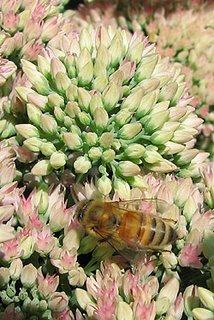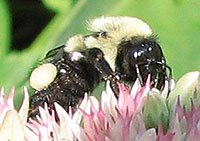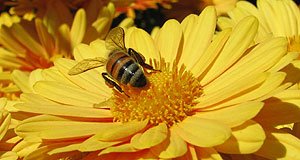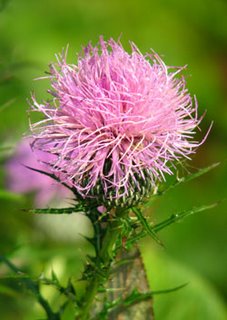The last blooms of Fall
 Autumn is close at hand and the animals and insects on our farm know that the cold days of winter are upon us. The squirrels are working hard to put up winter stores of nuts and when the days are warm the bees are scrambling to gather nectar. They will collect flower nectar and convert it to honey for their overwinter. It is very important that they have sufficient honey to keep the colony large enough for winter – a hive must cluster together in winter in order to maintain the temperature (9 degrees Celsius - 48 degrees Fahrenheit) required for their survival.
Autumn is close at hand and the animals and insects on our farm know that the cold days of winter are upon us. The squirrels are working hard to put up winter stores of nuts and when the days are warm the bees are scrambling to gather nectar. They will collect flower nectar and convert it to honey for their overwinter. It is very important that they have sufficient honey to keep the colony large enough for winter – a hive must cluster together in winter in order to maintain the temperature (9 degrees Celsius - 48 degrees Fahrenheit) required for their survival. A couple of weeks ago the Sedum in our garden was still blooming and humming with honey, bumble and sweat bees. The Sedum is withered now and the bees have moved on to other flowers that are still blooming.
A couple of weeks ago the Sedum in our garden was still blooming and humming with honey, bumble and sweat bees. The Sedum is withered now and the bees have moved on to other flowers that are still blooming.
 It is good to see the Honey bees so hard at work. In 1991 Honey bees in the Bluegrass region of Kentucky were hit with Varroa mites – a parasite that attacks adults and the brood. This parasite often kills entire honeybee colonies and greatly reduced their numbers in Kentucky for more than a decade.
It is good to see the Honey bees so hard at work. In 1991 Honey bees in the Bluegrass region of Kentucky were hit with Varroa mites – a parasite that attacks adults and the brood. This parasite often kills entire honeybee colonies and greatly reduced their numbers in Kentucky for more than a decade.Cotton or Scottish thistle (Onopordum acanthium) does not seem to be much loved by bees. Perhaps it’s the thorns – which, legend tells us, are so bothersome that they helped protect Scotland from the Vikings.


1 Comments:
Nice blog!
http://www.urbanbees.blogspot.com/
Post a Comment
<< Home